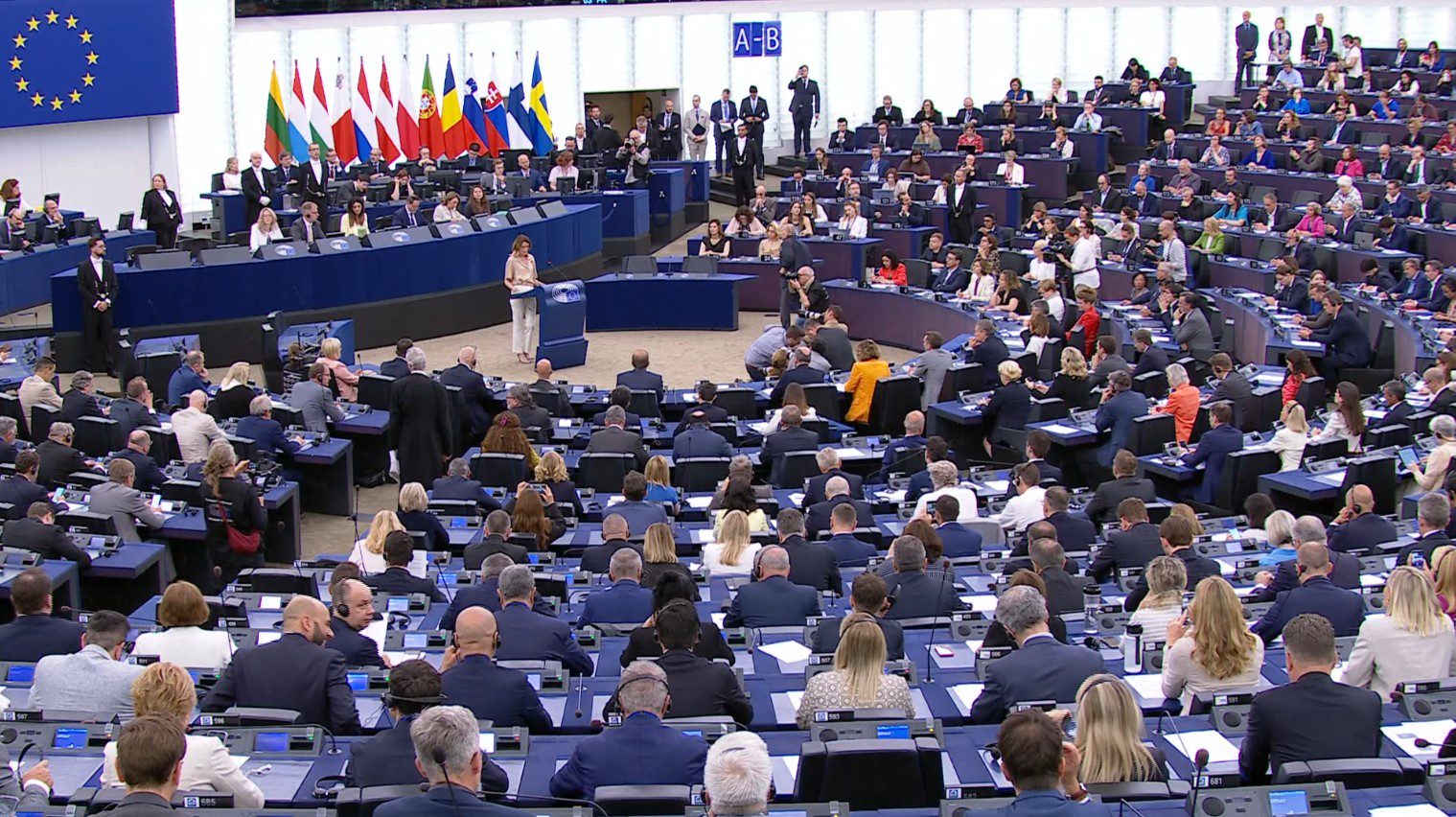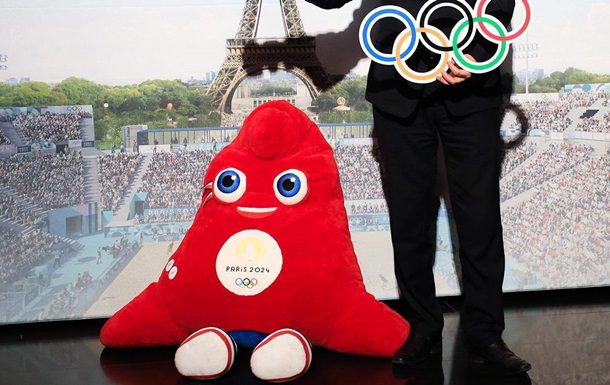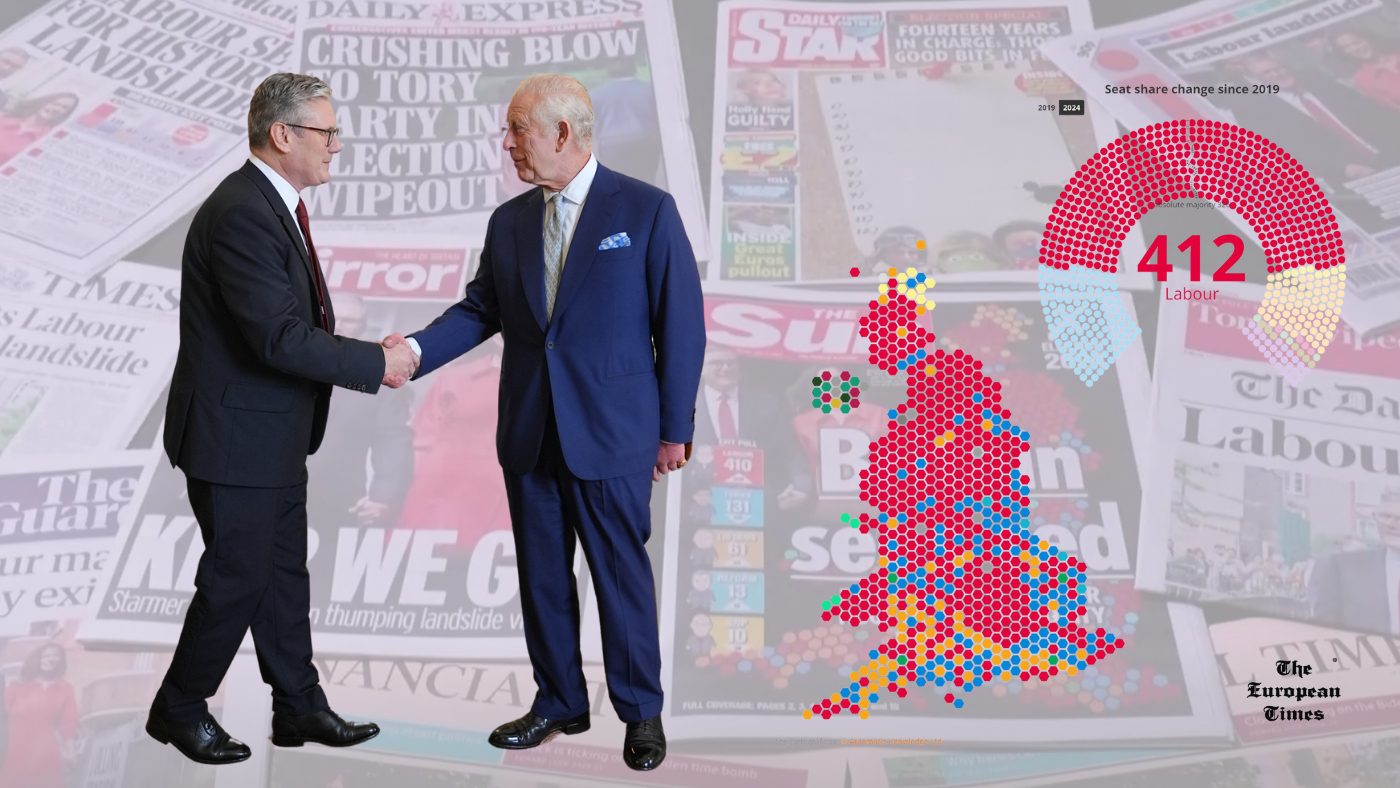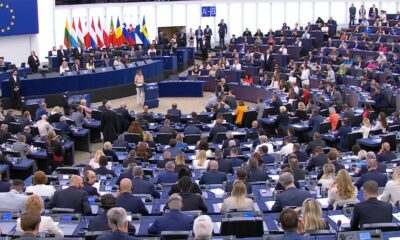Politics
It Seems Opposition emerged as the winner of the Poland elections
According to an exit poll, the opposition has emerged as the winners of the Polish election. If the vote count validates this outcome, it would signify a significant shift in direction following a fiercely contested election campaign.
WARSAW – The recent general election in Poland suggests that the opposition parties have gained a significant victory, which could bring about a substantial change in the country’s political landscape, as well as have implications for the European Union. The current government, led by the Law and Justice (PiS) party, has been at odds with Brussels for eight years, facing accusations of undermining democratic principles. The opposition’s win could signal a shift in Poland’s relationship with the EU and potentially alter the political dynamics within the bloc.
On Monday afternoon, a final exit poll was published that includes the early vote count. The poll reveals that PiS received 36.1 percent of the support, followed by the centrist Civic Coalition with 31 percent, the center-right Third Way with 14 percent, the Left with 8.6 percent, and the far-right Confederation with 6.8 percent. In the previous year of 2019, PiS had won 43.6 percent of the votes. IPSOS conducted the poll, which was then shared with Poland’s primary television networks.
Despite the Law and Justice party’s initial success in gaining support, their victory can be seen as a hollow one since the three main opposing parties would collectively hold the majority of seats in the 460-member parliament.
According to the exit poll, the voter participation rate was 72.9 percent, setting a new record.
The ruling party utilized the government’s resources to bolster its chances of success, and state media, which is aligned with the ruling party, provided strong support. However, the party faced numerous scandals, including allegations of corruption and the sale of visas for bribes. Additionally, the party’s leadership was marred by eight years of tensions and conflicts with society, including disputes over abortion, the rule of law, grain imports from Ukraine, and strained relations with the EU, which has withheld billions of dollars in funding due to concerns over the rule of law. These factors contributed to a decline in support for the ruling party.
Despite the eleventh-hour introduction of a controversial referendum with multiple loaded questions aimed at discrediting the opposition, the PiS party’s supporters remained unenthusiastic, resulting in an insufficient turnout to legitimize the vote.
It appears that PiS may not win enough seats to have a majority in parliament, even if it teams up with Confederation, which has stated it will not form a coalition with Law and Justice. The remaining three parties have promised to collaborate in order to remove PiS from power.
The final exit poll indicates that Law and Justice is projected to obtain 196 seats, while Civic Coalition is expected to secure 158 seats. Third Way is estimated to win 61 seats, followed by the Left with 30 seats, and Confederation with 15 seats.
The opposition parties, comprising three prominent groups, would hold a combined total of 249 seats in the parliament, while the ruling PiS party and its Confederation ally would have 211 seats.
The tally of votes is anticipated to be concluded and announced by the morning of the following Tuesday.
Surprising Outcome
Jarosław Kazcyński, leader of PiS, considered the outcome a success for his party, but acknowledged the uncertainty regarding its impact on their tenure in government. He expressed hope that they would be able to translate this achievement into another term in office, while also emphasizing their commitment to advancing their agenda, whether they remain in power or move into opposition.
He emphasized that his party is committed to seeing its program through to completion.
The outcome brought great enthusiasm to Donald Tusk, the head of the Civic Coalition.
“I have never been so happy in my life with this supposed second place, Poland won, democracy won. We removed them from power,” said ex-prime minister and European Council president, played a pivotal role in bolstering the opposition’s aspirations upon my reentry into Polish politics in 2021.
“We will create a good new democratic government with our partners,” he said, denouncing the past eight years of “evil.”
The opposition pledged to restore and strengthen relations with the European Union.
Robert Biedroń, a prominent figure of the Left, announced that Poland will be rejoining Europe on October 15th.
After the vote count is completed, President Andrzej Duda will be responsible for the next step. He has indicated that it is customary for presidents to select a member from the largest party to be nominated as the prime minister, allowing them the initial opportunity to assemble a government.
Despite the potential partnership with Confederation, Law and Justice (PiS) is unlikely to secure enough seats in parliament to attain a majority, according to Sean Gallup/Getty Images. In such a scenario, the president’s chosen candidate would have two weeks to form a government and seek a parliamentary vote of confidence. If unsuccessful, the parliament would then have the opportunity to nominate a prime minister.
Poland’s recent election was characterized by an exceptionally contentious and divisive campaign season, one that stands out as one of the most acrimonious in the country’s history of democratic politics.
Kaczyński portrayed the opposition as a significant danger to the country’s existence. He alleged that Tusk was colluding with Berlin and Brussels to undermine Poland’s autonomy and allow an influx of migrants from Muslim nations.
The criticism suggests that if PiS is re-elected for a third term, it would solidify their grip on power and steer Poland towards an authoritarian system, similar to Hungary’s, where the government has considerable influence over the judiciary, media, and state-owned enterprises, thereby undermining Poland’s democratic foundations.
“We will be keeping an eye on these elections throughout the night,” Tusk said. “As you know, tens of thousands of people are sitting in the precincts. They are watching, no one will steal these elections from us anymore. We will guard every vote.” Tusk stressed that every vote will be safeguarded, and that the organization will not allow any attempts to manipulate the outcome.
Politics
European Parliament begins its 10th term

European Parliament Convenes in Strasbourg: New President to be Elected amid Growing Diversity
On a momentous Tuesday in Strasbourg, the European Parliament, following the recent European elections held on 6-9 June, officially commenced its proceedings. The session, presided over by the outgoing EP President, Roberta Metsola of the EPP from Malta, commenced with a musical interlude before Pina Picierno, the second Vice-President in the outgoing Parliament from Italy’s S&D, announced the contenders for the coveted Presidency of the Parliament.
The highly anticipated vote, conducted through a secret paper ballot, is set to occur immediately after the inaugural session. To ensure a fair process, eight MEPs, selected by lot, will oversee the election proceedings.
The distinguished candidates vying for the Presidency are Roberta Metsola representing EPP from Malta and Irene Montero from The Left in Spain. Ahead of the crucial vote, both candidates delivered succinct statements to the plenary, outlining their visions for the future of the European Parliament.
To attain victory, a candidate must secure an absolute majority of valid votes cast, which equates to 50% plus one. In the event of no clear winner in the initial round of voting, subsequent rounds may follow with the possibility of new or existing candidates being nominated under the same stipulations. If needed, a third round could ensue with the same regulations. Should no candidate emerge victorious after the third round, the two candidates with the highest votes in this round will advance to a decisive fourth and final round, with the majority winner emerging triumphant.
Upon the election of the new President, the distinguished individual will assume the leadership position and deliver a notable opening address, setting the tone for the parliamentary term ahead.
In this landmark tenth term, the European Parliament boasts 720 seats, an increase of 15 from the previous legislature. Notably, 54% of MEPs are fresh faces, marking a slight decrease from the 2019 intake of 61%, with the representation of women comprising 39%, down marginally from the 40% mark in 2019.
Among the diverse MEP cohort, Lena Schilling, a 23-year-old from Austria representing Greens/EFA, stands as the youngest member, while the seasoned Leoluca Orlando from Italy, a Green/EFA representative aged 77, holds the distinction of the oldest MEP. The average age of MEPs stands at 50, reflecting a diverse range of experiences and perspectives within the parliamentary body.
As the tenth term commences, the European Parliament encompasses eight political groups, an increase from the previous session. Additionally, 32 MEPs remain non-attached, underscoring the dynamic landscape of political affiliations within the Parliament and highlighting the vibrant tapestry of representation in the European legislative body.
Politics
For the first time in 40 years, the Olympics will not be broadcast in Russia

Not a single TV channel, streaming platform or cinema in Russia will show the competitions from the Summer Olympics in Paris, which begin on July 26, sports.ru writes. This happened for the first time in 40 years, when in 1984 the USSR boycotted the Olympics in Los Angeles.
The official explanation is that this time only 16 athletes will participate under a neutral flag, without an anthem and in “unpopular sports”. The unofficial thing is that this is a purely political decision of the Kremlin, and heads of federations call those who agreed to participate traitors, homeless people and foreign agents.
Paris Mayor on Russians at the 2024 Olympics: It would be better if they didn’t come
Anne Hidalgo condemned the International Olympic Committee’s decision regarding representatives of the aggressor country, she said already in March.
According to the official, it would be good if athletes from the terrorist country did not participate in international competitions.
“I prefer that they not come. We cannot act as if the invasion does not exist. We cannot act as if Putin is not a dictator who is threatening all of Europe today.”
At the same time, she added that such sanctions cannot be imposed against Israeli athletes, since Israel’s actions are different from Russia’s aggression.
“There can be no talk of imposing sanctions against Israel in connection with the Olympic and Paralympic Games. Because Israel is a democratic country,” the mayor told Reuters.
Photo: Social Network / korrespondent.net.
Politics
Keir Starmer Secures Historic Labour Victory, Ending 14 Years of Conservative Rule in UK

London – In a seismic shift in British politics, the Labour Party, led by Keir Starmer, has achieved a resounding victory in the UK general election, bringing an end to 14 years of Conservative governance. The results, which had been foreshadowed by months of polling, have given Labour its strongest parliamentary majority since 2001.
Labour secured an impressive 412 seats, far surpassing the 326 required for an absolute majority and more than doubling their 2019 performance. This landslide victory marks a dramatic turnaround for the party and signals a clear desire for change among the British electorate.
Upon learning of his victory in his central London constituency, Starmer declared, “The people have spoken, and they are ready for change.” This statement encapsulates the mood of a nation seemingly eager to embark on a new political chapter.

The Conservative Party, in stark contrast, suffered its worst defeat since its founding in 1834. The Tories lost at least 250 seats compared to their 2019 performance under Boris Johnson, ending up with a mere 121 seats. This historic collapse prompted the outgoing Prime Minister, Rishi Sunak, to apologize to “those Conservatives who have lost despite their dedication” while congratulating Starmer on his victory.
The election also saw significant shifts for other parties. The Liberal Democrats, led by Ed Davey, emerged as the third-largest party with 71 seats, a gain of 63 from the previous election. The Scottish National Party (SNP) experienced a dramatic decline, securing only nine seats, a loss of 38 compared to 2019. Sinn Fein, the Irish republican party, maintained its seven seats.

In a surprising development, the nationalist-populist Reform UK, led by Nigel Farage, entered Parliament with four seats, exceeding all poll predictions. The Green Party quadrupled its representation, winning four seats in total.
Starmer’s first address as Prime Minister was filled with promises of change and renewal. “We did it!” he exclaimed, emphasizing that Britons would wake up to find “a weight has finally been lifted from the shoulders of this great nation.” He stressed the urgency of rebuilding trust in politics and committed to serving all citizens, regardless of their voting preferences.
The new Prime Minister outlined his government’s priorities, including improving security on streets and borders, rebuilding infrastructure, and enhancing opportunities in education and employment. “Changing a country isn’t as easy as pressing a button,” Starmer cautioned, “We will rebuild the United Kingdom, brick by brick.”
Rishi Sunak, in his farewell speech, acknowledged the clear signal for change sent by the electorate. “I have heard your anger and disappointment. I take responsibility for these results,” he stated. Sunak announced his intention to step down as Conservative Party leader, but not immediately, allowing time for a formal process to choose his successor.
The election also marked a personal triumph for Nigel Farage, who finally won a parliamentary seat on his eighth attempt, representing Clacton-on-Sea. Farage hailed his party’s performance as “extraordinary” and vowed to fill what he sees as a “huge void in the center-right.”
In regional developments, Sinn Fein became the largest Northern Irish party in the British Parliament for the first time, maintaining its seven seats while the Democratic Unionist Party (DUP) fell to four. In Scotland, the SNP lost its dominance, dropping from 48 seats in 2019 to just 8, with Labour making significant gains. Wales saw the Conservatives lose all representation, with Labour dominating the results.
As the United Kingdom enters this new political era under Starmer’s leadership, the country faces significant challenges. The incoming government must address economic concerns, social policies, and perhaps most critically, work to restore public trust in the political system. The scale of Labour’s victory suggests a strong mandate for change, but the real test lies in translating this electoral success into effective governance in the years to come.
-

 Sports7 days ago
Sports7 days agoOfficial: Juventus announces sixth purchase
-

 Health & Society7 days ago
Health & Society7 days agoThe intoxicated society
-

 Politics5 days ago
Politics5 days agoThe Russian patriarch to Putin: You are the first truly Orthodox president
-

 Sports6 days ago
Sports6 days agoBeautiful Juve: Vlahovic and youth rout Verona. Thiago Motta first
-

 Sports6 days ago
Sports6 days agoJuventus, Vlahovic: “Now we play a different game.”
-

 Politics16 hours ago
Politics16 hours agoEuropean Parliament begins its 10th term
-

 Politics4 days ago
Politics4 days agoEU Intensifies Pressure: Six-Month Extension of Russia Sanctions
-

 Health & Society3 days ago
Health & Society3 days ago7 Superfoods That Will Boost Your Fitness Results








